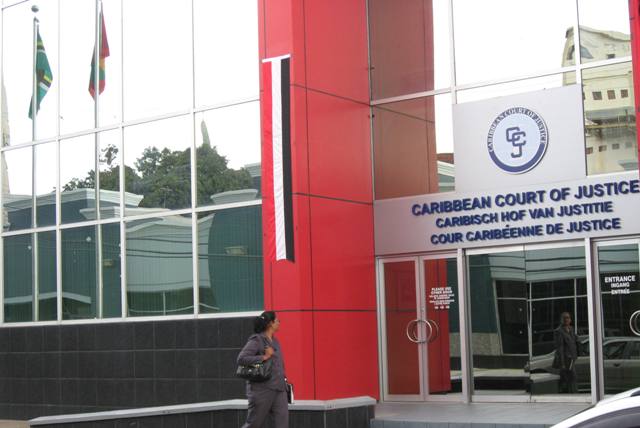 Voters in both Antigua & Barbuda and Grenada voted to keep Privy Council as their final appellate court over the CCJ [photo: Debbie Ransome]
Voters in both Antigua & Barbuda and Grenada voted to keep Privy Council as their final appellate court over the CCJ [photo: Debbie Ransome]
Voters chose to retain the judicial committee of the UK’s privy council (JCPC) as their final court of appeal, though on a very small turnout in both countries. The referendums, on 6 November, asked whether they wished to follow Barbados, Belize, Dominica and Guyana in recognising the Caribbean Court of Justice as their country’s highest appellate court.
Both prime ministers had urged their citizens to vote for the change but Grenadians voted by 12,133 (54.39%) to 9,846 (45.05%) to keep the privy council on a low turnout of 28%. It was closer in Antigua and Barbuda, where 9,234 people (52.04%) chose to retain the privy council, while 8,509 (47.96%) wanted the CCJ, Loop reported. There was a low turnout of 33.6% for the country’s first ever referendum, the Antigua & Barbuda Electoral Commission announced.
Caribbean360 quoted Grenada’s prime minister, Keith Mitchell, saying it was ‘about making justice accessible to every Grenadian’. He argued that ‘the vast majority of people don’t have the money to access’ the Privy Council and the CCJ would ‘make final justice less costly and more accessible to ordinary people’. He added: ‘Justice not accessible is also justice denied.’
Antigua and Barbuda’s opposition United Progressive Party told its supporters to vote with their conscience but Grenada’s opposition party, the National Democratic Congress, had opposed the move.
It was the second referendum called in Grenada on cutting the last legal links with the former imperial power – a process that probably began in the region with an editorial in the Jamaican Gleaner in 1901. In the 1920s the JCPC was still the highest court for more than a quarter of the world, including Canada, Australia and India. Most Commonwealth countries have long since set up their own supreme courts but as well as Antigua and Barbuda and Grenada, the JCPC is still the highest appellate court of Jamaica, the Bahamas, the British Indian Ocean Territory, the Cook Islands and Niue, St Christopher and Nevis, St Lucia, St Vincent and the Grenadines, and Tuvalu. It also hears appeals from the British Overseas Territories, such as the Falkland Islands and Gibralatar, and sovereign military base areas, such as Akrotiri in Cyprus.
Sir Ronald Saunders, writing for Caribbean News Now, likened the two plebiscites to the 2016 EU referendum in the UK, saying many people had ‘voted on irrelevant, extraneous issues and lies’. Bogus claims about the integrity and independence of the CCJ judges and the cost of contributions to the CCJ had filled the vacuum left by a relatively ‘hands-off’ approach by the politicians in both countries. ‘The result was not only a lack of knowledge, but also a lack of popular interest,’ he said. And, like with the British vote on the EU, the intention of the opposition and many voters had ‘been to give the governing party a bloody nose’.
Despite its colonial trappings, the best argument in the Caribbean for retaining the privy council is that it provides an independent and eminent judiciary for free. Even Trinidad & Tobago, where the CCJ has been headquartered since it was inaugurated in 2005, prefers not to use the home-grown alternative. But the legal link with London will surely be coming to an end sooner or later. In an interview with the Financial Times in 2009, the first president of the UK’s supreme court, Lord Phillips, expressed his concern that privy council matters took up 40% of the judges’ time and asked whether some of the cases really needed to be heard by Britain’s most senior judges. It was, he gently suggested, time for Commonwealth states to set up their own appeal courts. Prof Robert Hazell, of University College London’s Constitution Unit, went further, calling it a ‘minor public scandal’ that top judges spent nearly half of their time on cases ‘of no interest to anyone in the UK’.



